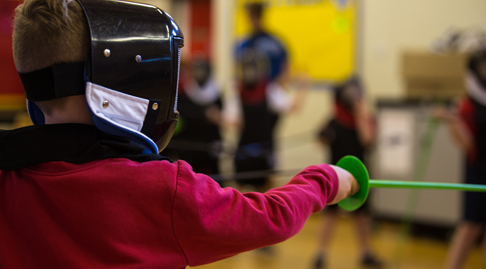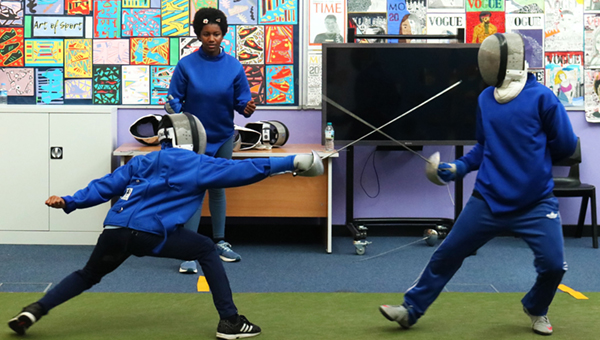

Last updated: 10.10.2024
Are you OK? Really OK? If you’re really not, visit this page for contact details of people and organisations that can help: Are You OK?
At British Fencing we believe it is important to keep conversations about mental health and wellbeing going. It’s well-known that sport and exercise has a positive effect on mental health.
We also recognise that sport can be both part of a solution, but also part of the problem – for example the additional stresses faced by competitive athletes seeking selection for GBR.
One in four people will experience issues with their mental health every year, and this number is growing. We want to help our fencing coaches, clubs and communities to support people experiencing issues.
The most important step is to create an environment where conversations can start, and know that there are plenty of places to signpost people to if you feel you can’t provide the support necessary.
You can start by just asking people if they are OK. It’s a good idea to ask them twice.
On this page you can find out how to:
The charity Mind has lots of useful information and resources around mental health.
You can find out about the most commonly discussed mental health problems, including possible causes and how to access treatment and support. They include tips for helping yourself, and guidance for friends and family.
• Types of mental health problems
• Tips for everyday living – staying mentally well
• Guidance on terminology and imagery
You can read more specifically about sport, physical activity and mental health here.
The first British Fencing podcast interviews Jo Kowalski of social movement Time to Change, Paul Davis of the Paul Davis Fencing Academy and Team GB sabreur JJ Webb for insights into mental health in our sport.
Mental Health Awareness for Sport and Physical Activity is a two hour online course aimed at sport and physical activity providers, coaches, sports administrators, front of house staff and volunteers.
The course was developed by Mind with support from UK Coaching, and is recommended for coaches and others working in sport.
Mental Health First Aid is an educational course which teaches people how to identify, understand and help a person who may be developing a mental health issue. In the same way as we learn physical first aid, Mental Health First Aid teaches you how to recognise those crucial warning signs of mental ill health.
It’s important to use the right language when talking about mental health. The SRA have published a language and terminology factsheet to help you.
Mind have developed a toolkit to support organisations to provide sport and physical activity services for people with mental health problems, topics include:
You can access the toolkit here.
Other useful resources:
Local Minds support over 400,000 people across England and Wales. Their services include supported housing, crisis helplines, drop-in centres, employment and training schemes, counselling and befriending.
Each local Mind is an independent charity run by local people, for local people. Each is responsible for its own funding and the services it provides, but all are affiliated to Mind.
Time to Change is an anti-stigma campaign led by Mind and Rethink Mental Illness. You can find out more and access Time to Talk resources here: Time To Talk

Activate your free, 90 day membership to British Fencing today. Membership insures you to fence at any British Fencing club.
Join Today
Does your organisation want to bring fencing to your community? Explore our core coach course, no experience required.
Core Coach
Start your journey to becoming a community fencing coach. Introduce fencing to pupils for as little as £25. Find out more today.
Learn More